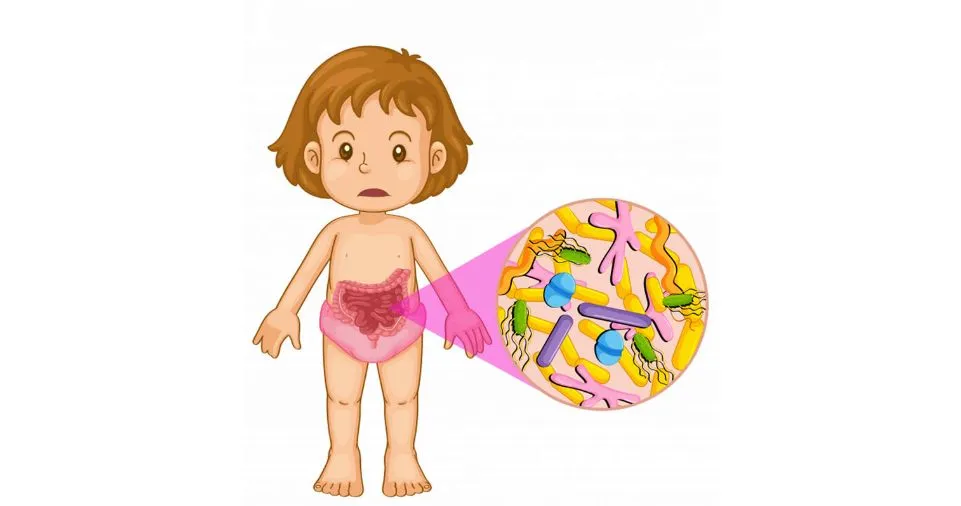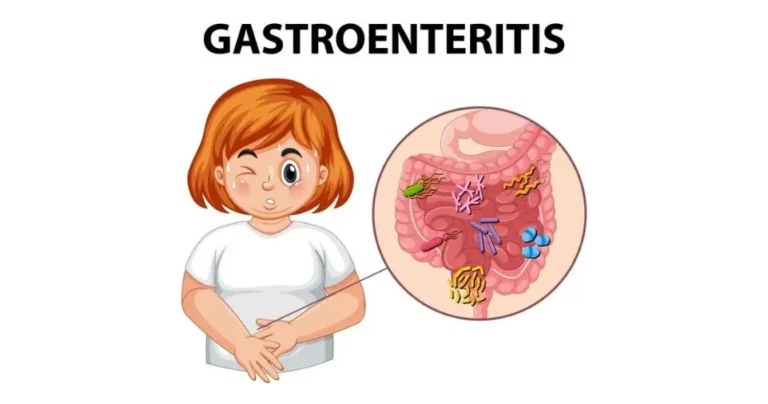Gastroenteritis, commonly known as the “stomach flu,” is a condition that can quickly disrupt your daily routine.
It often comes on suddenly, leaving you feeling ill and uncomfortable.
But what exactly is gastroenteritis, and how can you identify its symptoms?
This guide will help you understand the key signs, causes, and treatments, and provide practical advice for managing this condition.
Understanding Gastroenteritis
Gastroenteritis is a widespread illness that leads to diarrhea and vomiting. It typically occurs due to viral or bacterial infections in the stomach and intestines.
This condition can affect anyone, but it is particularly common in children, with many cases resulting from a virus called rotavirus.
Imagine your digestive system as a well-functioning machine. When gastroenteritis strikes, it throws this system into chaos.
Your body’s response is to eliminate the harmful substances as quickly as possible, often resulting in unpleasant symptoms.
Key Symptoms of Gastroenteritis
When gastroenteritis hits, you might experience a range of symptoms, each affecting you differently. Here are the most common signs:
- Nausea: You may feel a queasy sensation in your stomach, similar to motion sickness.
- Vomiting: This is your body’s way of forcefully expelling stomach contents.
- Diarrhea: Loose, watery stools often occur, leading to frequent trips to the bathroom.
- Abdominal Cramps: You might feel sharp or aching pain in your stomach, akin to a muscle spasm.
- Fever: An elevated body temperature may accompany the other symptoms.
- Headache: A dull or throbbing pain might occur in your head.
- Muscle Aches: Your muscles may feel sore, as if you’ve been overexerting them.
The severity and duration of these symptoms can vary. Some people may experience mild discomfort, while others might feel extremely ill. Symptoms usually last a few days to a week.
Gastroenteritis in Children
Children are especially vulnerable to gastroenteritis, and parents need to be vigilant. Dehydration is a major concern when children have this condition.
Watch for signs like a dry mouth, sunken eyes, decreased urination, or unusual lethargy. If you notice these symptoms, contact your healthcare provider immediately.
Causes of Gastroenteritis
Several different viruses and bacteria can cause gastroenteritis. Here’s a look at some of the main culprits:
- Norovirus: This highly contagious virus is a leading cause of gastroenteritis. It spreads rapidly through contaminated food, water, or close contact with infected individuals.
- Rotavirus: Before vaccines became widespread, rotavirus was a common cause of severe diarrhea in young children. It remains a significant threat in areas with low vaccination rates.
- Astrovirus: This virus primarily affects young children and the elderly. It’s less common but still causes significant discomfort.
- Adenovirus: Adenovirus can cause gastroenteritis and respiratory infections, making it a double threat.
- Bacteria: Various bacteria, including E. coli and Salmonella, can also cause gastroenteritis. These bacteria are often found in undercooked meat or contaminated produce.
Stages of Gastroenteritis

Gastroenteritis progresses through several stages:
- Incubation: You’ve been exposed to the virus or bacteria, but symptoms haven’t started yet.
- Onset: Symptoms like nausea, vomiting, and diarrhea begin to appear.
- Peak: This is the most intense stage, where symptoms are at their worst.
- Recovery: Symptoms start to subside, and you begin to feel better.
- Convalescence: You’re almost back to normal but may still feel weak or tired.
Treatment and Prevention
The key to managing gastroenteritis is staying hydrated and resting. Drink small amounts of water frequently, and consider using oral rehydration solutions if necessary.
Avoid solid foods until you feel ready, and then start with bland, easily digestible items like bananas, rice, and toast.
If symptoms are severe or last more than a few days, it’s important to seek medical attention.
Medications like anti-diarrheal or anti-nausea drugs can be helpful, but always consult a doctor before using them, especially in children.
Retro Bowl Unblocked 76: A Fun Distraction
While dealing with gastroenteritis, finding distractions can help take your mind off the discomfort.
Playing simple games like “Retro Bowl Unblocked 76,” which offers a blend of football management and retro-style gameplay, can be a good way to pass the time and lift your spirits.
When to See a Doctor
Most cases of gastroenteritis resolve on their own, but you should seek medical advice if you:
- Are unable to keep fluids down for 24 hours.
- Have bloody stools or a high fever.
- Show signs of severe dehydration.
- Experience symptoms that last longer than a week.
Prevention Strategies
Preventing gastroenteritis involves maintaining good hygiene and food safety practices:
- Handwashing: Wash your hands frequently, especially before eating or preparing food.
- Food Safety: Cook meat thoroughly and wash produce carefully.
- Avoiding Contagion: Stay away from people who are sick, and disinfect surfaces regularly.
- Vaccination: Ensure children receive the rotavirus vaccine to prevent severe infections.
ALSO READ:
Conclusion
Gastroenteritis can be a challenging condition, but with the right knowledge and precautions, you can manage it effectively.
Stay hydrated, rest, and follow good hygiene practices to reduce your risk of contracting or spreading this illness.
If in doubt, always consult with a healthcare professional for advice and treatment options.

